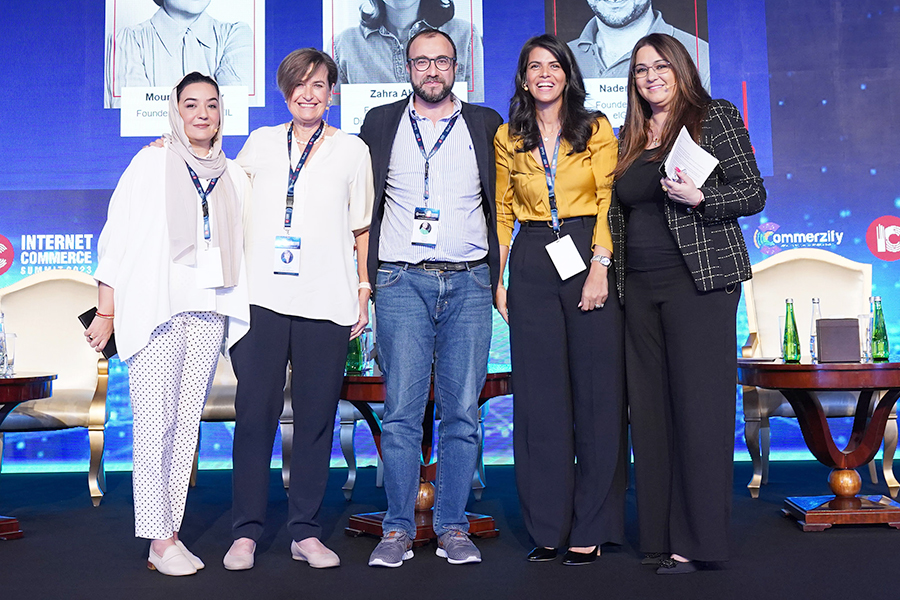
Lessons from Creating a Valuable Business: Founders’ Views
It’s important to spot emerging trends before they actually emerge – that was a key theme connecting the panellists at this ICS MENA panel discussion. That’s one of the crucial lessons from creating a valuable business, founders of iconic retail businesses shared.
“There was a time when people questioned who will buy food products online? Yet, we started the only grocery delivery platform elGrocer (at that time) with a strong focus on building the right fundamentals,” recollected Founder & COO Nader Amiri.
It is absolutely crucial to spot a gap and start something unique for the market, agreed Stevi Lowmass, CEO & Founder, The Camel Soap Factory. “A big reason why our business scaled massively from 2013-19 as our products mainly targeted at the tourist population did exceptionally well until the pandemic hit when we lost 95% of our revenues overnight.” A massive pivot point was when The Camel Soap Factory moved into the contract manufacturing space.
While several brands have spotted a gap and launched unique concepts the pandemic indeed compelled many businesses to pivot in various ways, observed Zeina Akkawi, Publicist and Founder, PAZ Marketing. “So, how did these shifts impact brands,” she asked.
“While content creation has always been pivotal for my brand, it got amplified during the pandemic. On the other hand, my cloud kitchen struggled as people didn’t really want to eat cold salads and sandwiches during the pandemic. It was a period of massive struggle which eventually led to a major pivot point as we started our frozen foods range,” shared Zahra Abdalla, Founder & Creative Director, Zahra’s Kitchen.
Sharing her perspective Mouna Abbassy, Founder and CEO, IZIL Beauty said, “From 2013-15 we operated through kiosks. In 2016 we opened a kiosk at Dubai Mall, closing the other kiosks while ramping up our online presence. In 2020 when the pandemic hit, we were right in the midst of upgrading to a flagship store in Dubai Mall which we didn’t halt. Fortunately, we were well-positioned to leverage online and social commerce ensuring that the business didn’t come to a standstill.”
Similarly, even before the trend of influencer-driven marketing became popular izil took the “risk” to put some bucks behind the trend and the results were positive so much so that the brand created a full-fledged influencer-driven programme. “It really helped us build brand awareness,” Abbassy added.
At this point Akkawi turned to the topic of sustainability and how brands are trying to operate sustainably. It’s a trend that’s been in the making for some time now, Amiri stated. “In our case some key focus areas include sustainable and packaging free offerings and directing attention towards local sourcing.”
The word sustainability requires deeper understanding to approach it holistically, Abdalla opined. “We must understand the ramifications from all perspectives including reducing carbon footprint, food waste and much more.”
“One of the reasons why we built a brand that used regional ingredients right from our inception was to ensure that our supply chain is as local as possible,” Lowmass said. “And today I’m proud to say that we are a zero-waste company with a huge focus on being sustainable across the flywheel.”
“izil means pure in Arabic and as the name indicates purity is a core value embedded in our DNA. From ingredients to manufacturing, optimally planning shipping routes to minimising waste and reducing packaging we investigate the entire value chain. Real impact will be visible only if we continue the journey as opposed to adopting sustainability for marketing purposes,” Abbassy concluded.